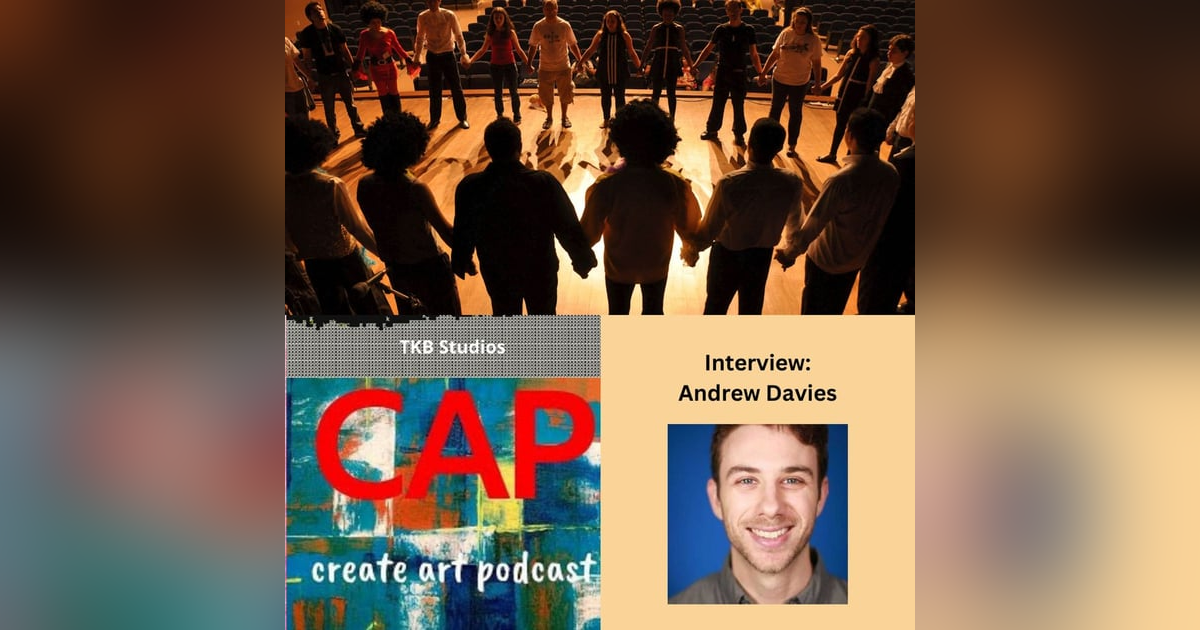Better Meetings, Happier Teams: The Art of Improv in Business


Andrew Davies is on a mission to transform the corporate world with the magic of improv! In our chat, we dive deep into how he uses his skills as the Better Meetings Director at Artly Working to help teams ditch the snooze-fest meetings and embrace creativity and collaboration instead. Imagine a workplace where brainstorming feels like fun instead of a chore—yeah, that’s what we’re talking about! We also get into the nitty-gritty of how you don’t have to be the funniest person in the room to rock improv; it’s all about being present and supportive. So grab your favorite mug and get ready to learn how to spice up those meetings that should’ve been an email—because trust me, you’ll want to tune in for this one!
Bio
Andrew Davies is the Better Meetings Director of Artly Working, which uses Improv and Theatre to help build stronger teams made up of happier people, and higher performers. Since starting in 2019 Artly Working has led programs with over 100 innovative companies like Netflix, Roblox, Meta, and Google.
With training In Improvisation from The Magnet Theatre, and Facilitation from Georgetown University, Andrew Is passionate about bringing those skills to strengthen company culture, and people experience. His Better Meetings workshop helps teams to gather with purpose and play, designing and facilitating more effective meetings that people actually want to attend!
Andrew has won several awards for his groundbreaking work including the Young Pioneer Award from the Jewish Education Project and the Pomegranate Prize from the Covenant Foundation. Andrew is also the co-founder of Charactours, theatrical walking tours where the past visits you, and The Bible Players, a Jewish comedy team.
When Andrew’s not working, he can be found making up songs with his toddlers Miller and Oren, bike riding around Philadelphia, or leading a free tennis camp In the neighborhood
Links
Takeaways:
- Improv isn't just about being funny; it's all about being real and present in the moment, which can transform your day-to-day interactions.
- Andrew Davies shows us how improv can bridge the gap between artistic expression and corporate culture, making meetings more engaging and effective.
- Creating a supportive environment in the workplace is crucial—everyone should feel they can participate without fear of judgment.
- The 'Yes, and...' principle can be a game changer in brainstorming sessions, helping to nurture creativity and collaboration among team members.
Links referenced in this episode:
Companies mentioned in this episode:
- Artly Working
- Netflix
- Roblox
- Meta
- Caricatures Theatrical Walking Tours
- Bible Players
How do I get such great guests?
PodMatch I use Podmatch to get the best guests on the show. Check out PodMatch if you want to guest on other podcasts or if you have a podcast and need guests for your show. Guests from Podmatch
Make Sharing your podcast easier
Use Podcast Beacon for the best NFS products to share your podcast while out and about or at conferences.
Reach Out To The Podcast
To reach out to me, email timothy@createartpodcast.com I would love to hear about your journey and what you are working on. If you would like to be on the show or have me discuss a topic that is giving you trouble write in and let's start that conversation.
- Email: timothy@createartpodcast.com
- YouTube Channel: Create Art Podcast YT Channel
- IG: @createartpodcast
- Twitter: @createartpod
Create Art Podcast Newsletter
Special Message
If you have found value in this podcast, please share it with a friend as that is the best way to discover new podcasts. I want this to be a 5-star podcast in your eyes so let me know what you would like to see.
Speaking about sharing with a friend, check out my other podcast Find A Podcast About where I help you outsmart the algorithm and find your next binge-worthy podcast. You can find that podcast at findapodcastabout.xyz.
For all of my projects check out my portfolio website TKBPodcaststudio.com where I help my clients through quiet professionalism lead through the noise.
Special Ask
Let me know what you think about the podcast by taking a survey. 2024 Listener Survey yes it is 2025, but hey I am late to the game on this. Thank you ahead of time to help me make this more of what you are wanting to hear.











